Are you feeling frustrated with a situation at work and unsure how to address it? Writing a formal grievance letter can be an effective way to communicate your concerns while ensuring that your voice is heard. In this article, we'll guide you through the essential components of a grievance letter, helping you articulate your issues clearly and professionally. So, grab a pen and let's dive in to explore how you can effectively lodge your grievance and take the first step towards resolution!
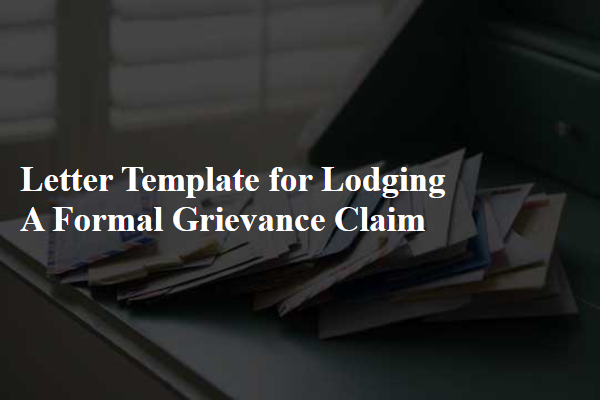
Personal Information and Contact Details
Formal grievance claims require clear and structured presentation of personal information and contact details for effective communication with the relevant authorities. Key components include full name, which identifies the individual lodging the complaint, and physical address, providing a location for correspondence. Include a primary contact number, usually a mobile phone for immediate accessibility, alongside an email address, facilitating direct digital communication. Additionally, referencing the specific department or individual within the organization that the grievance is addressed to can streamline the handling process, increasing the likelihood of a prompt response.
Detailed Description of the Grievance
A formal grievance claim must clearly outline the specific issues and circumstances leading to a complaint. For instance, in a workplace incident on September 15, 2023, an employee experienced alleged discrimination based on gender during a team meeting at Company HQ, located in New York City. The employee reported feeling marginalized when suggestions were overlooked, while male counterparts' opinions were prioritized. Additionally, the company's harassment policy, established in 2020, was not followed in addressing these concerns, leading to further frustration. Documentation of the event includes email correspondence and witness statements from colleagues who observed the interactions. This context highlights a troubling workplace culture that prioritizes certain voices over others, thus necessitating immediate intervention and resolution.
Relevant Dates and Events
A formal grievance claim can often arise from a series of incidents or disputes within an organization. Documenting the relevant dates and events is critical for clarity and context. For instance, on March 15, 2023, a verbal warning was issued during a performance review, expressing concerns about job performance. Following this, on April 1, 2023, an email was received outlining specific expectations, which were allegedly not met. A subsequent meeting took place on April 10, 2023, where the employee was informed of possible disciplinary action, including suspension. On April 15, 2023, a formal letter was sent detailing the impending disciplinary measures, creating a timeline of escalating concerns and unresolved communications leading to the grievance claim. Each of these events plays a significant role in the broader context of the grievance.
Desired Resolution or Outcome
The desired resolution or outcome in a formal grievance claim often entails specific actions for restitution. For instance, an employee may seek reinstatement after wrongful termination, financial compensation for lost wages, or implementation of revised workplace policies addressing discriminatory practices. In educational grievances, outcomes may involve academic probation reviews, modifications in disciplinary actions, or enhancements in safety protocols. Each claimed outcome should correspond directly to documented breaches causing distress, clearly articulating expectations for redress and highlighting urgency for resolution, ensuring appropriate accountability of involved parties.
Supporting Documentation and Evidence
A formal grievance claim requires well-organized supporting documentation and evidence to substantiate the complaint. Essential elements include detailed records such as date-stamped emails, meeting minutes, or official memos related to the incident. Witness statements can provide additional context, emphasizing occurrences from multiple perspectives. Photographs or videos may serve as visual proof when applicable, capturing the scene relevant to the grievance. Financial records outlining any economic impacts can strengthen the case, showcasing potential losses or damages. Furthermore, relevant company policies or procedures should be included to demonstrate how the situation deviates from established protocols. Collectively, this documentation creates a comprehensive foundation for the grievance, ensuring all aspects are thoroughly represented and considered.

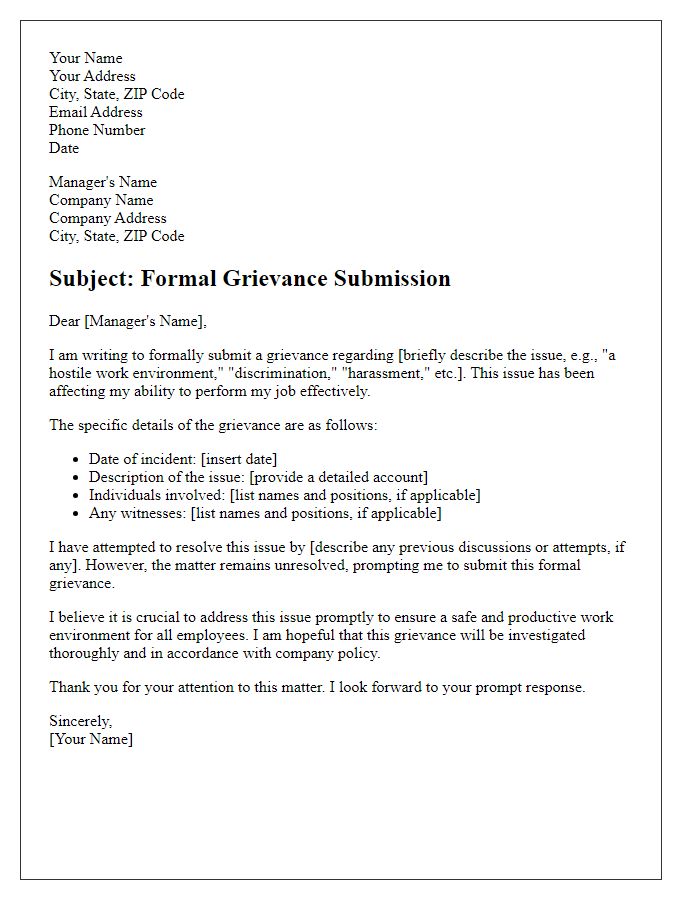
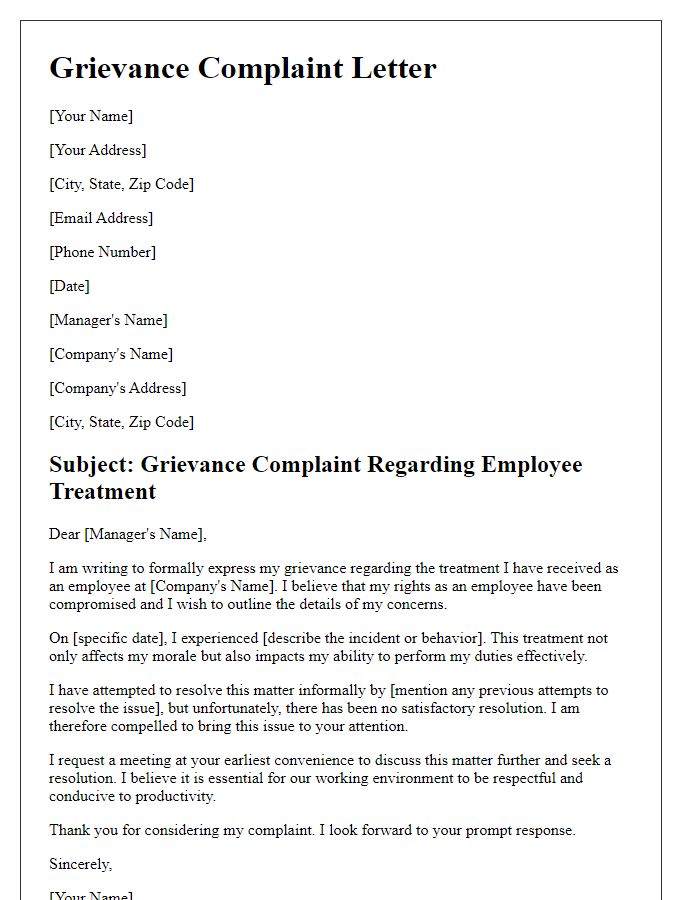
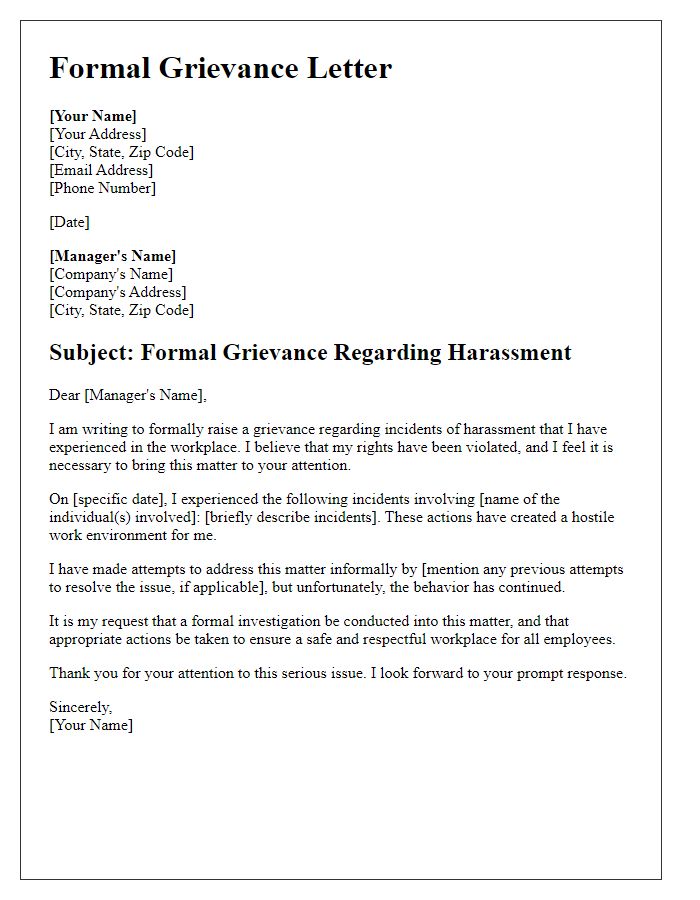
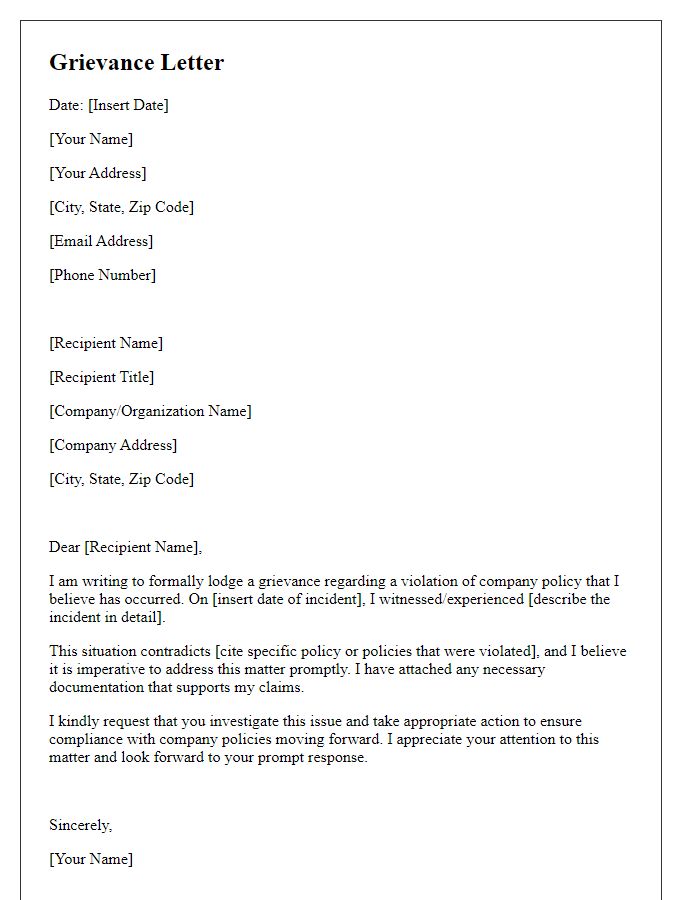
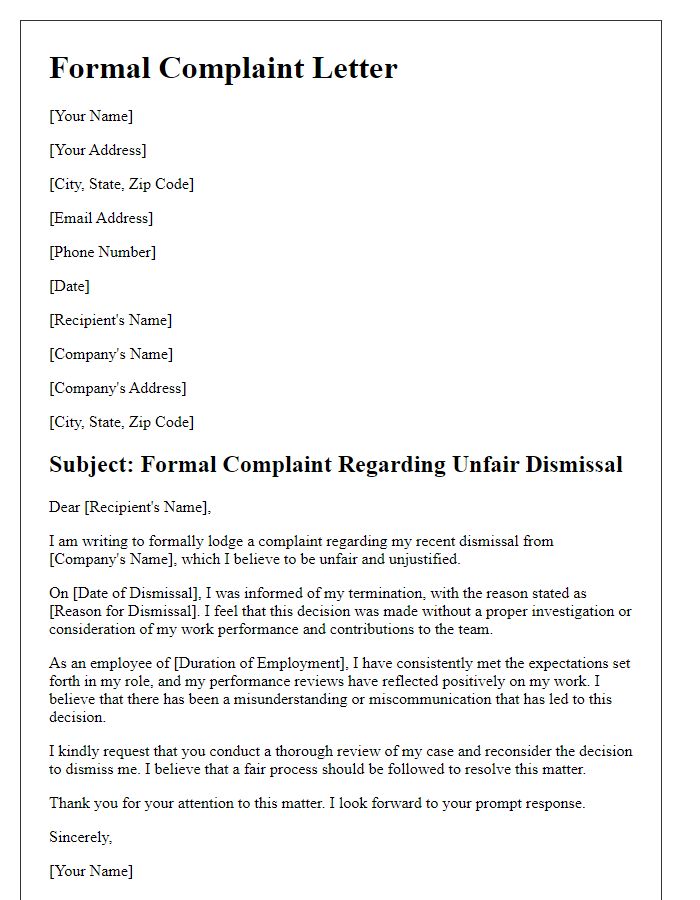
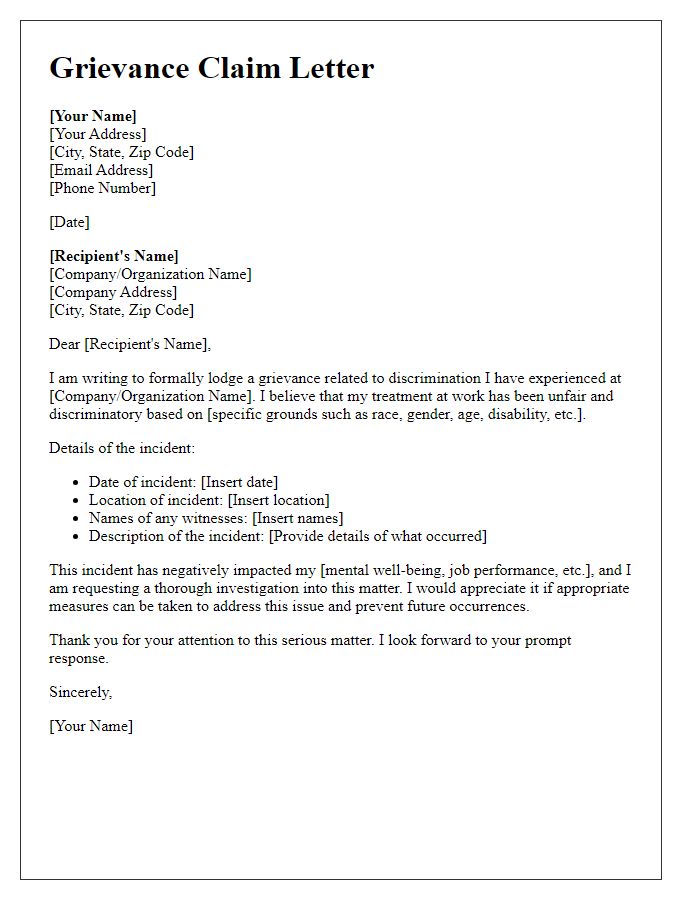
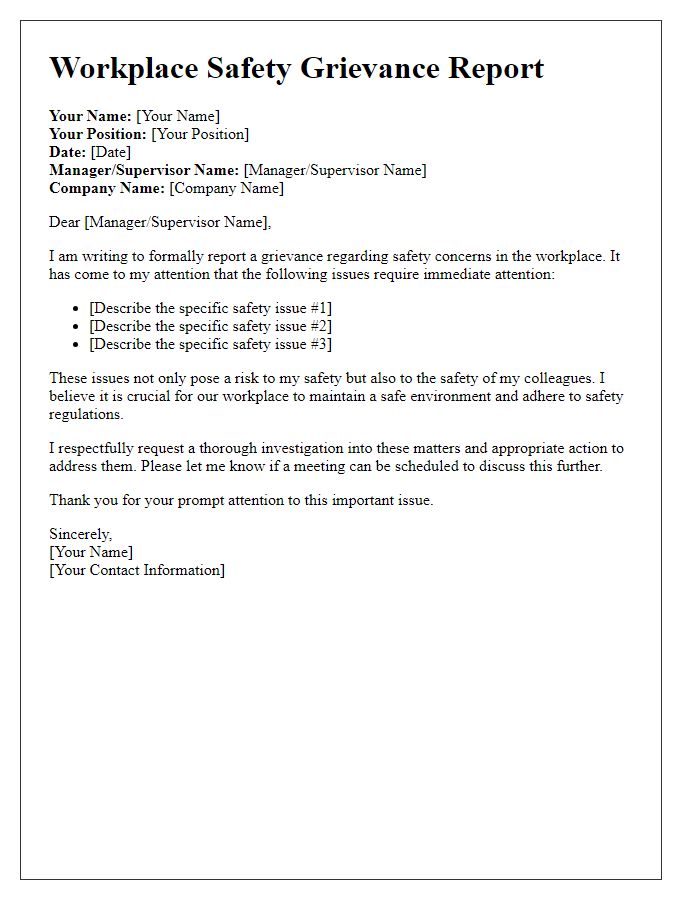
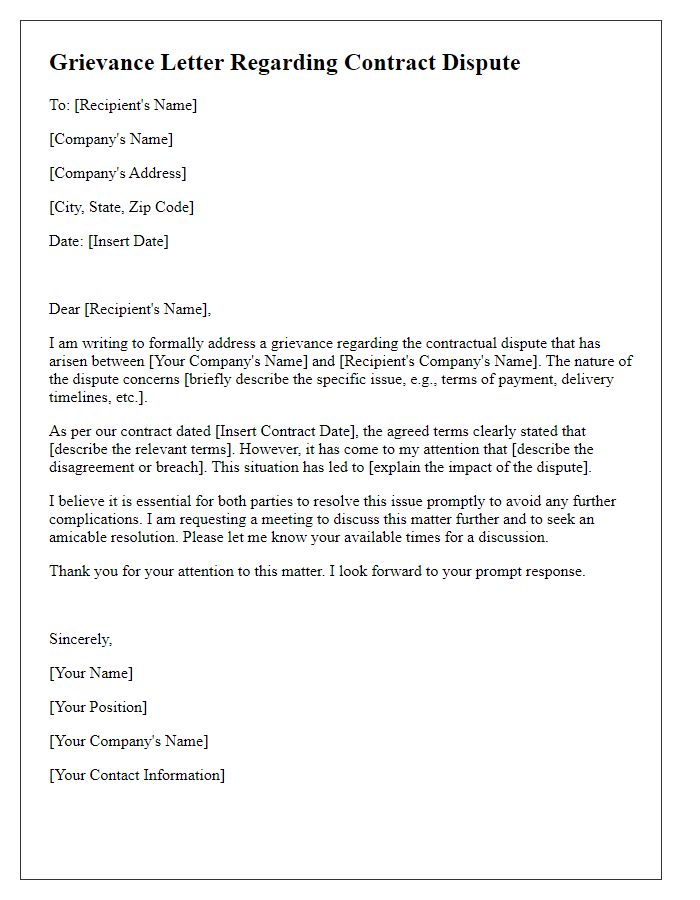
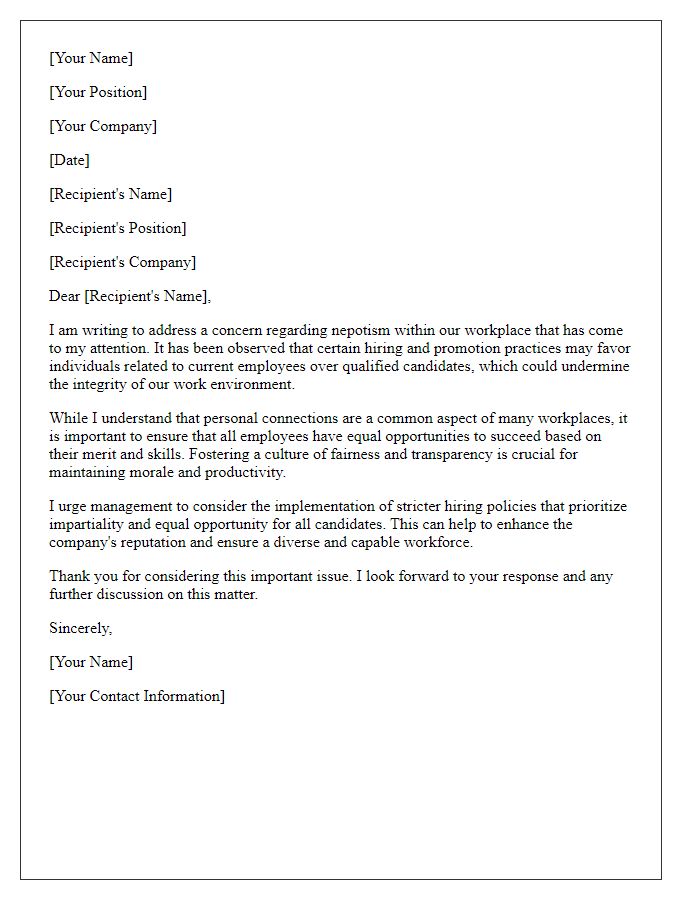
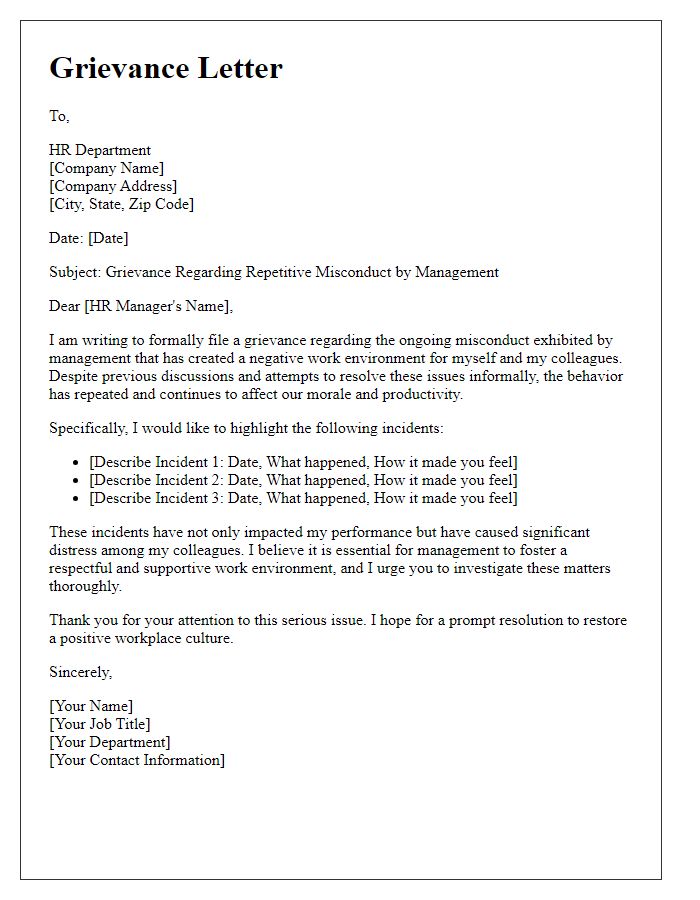


Comments